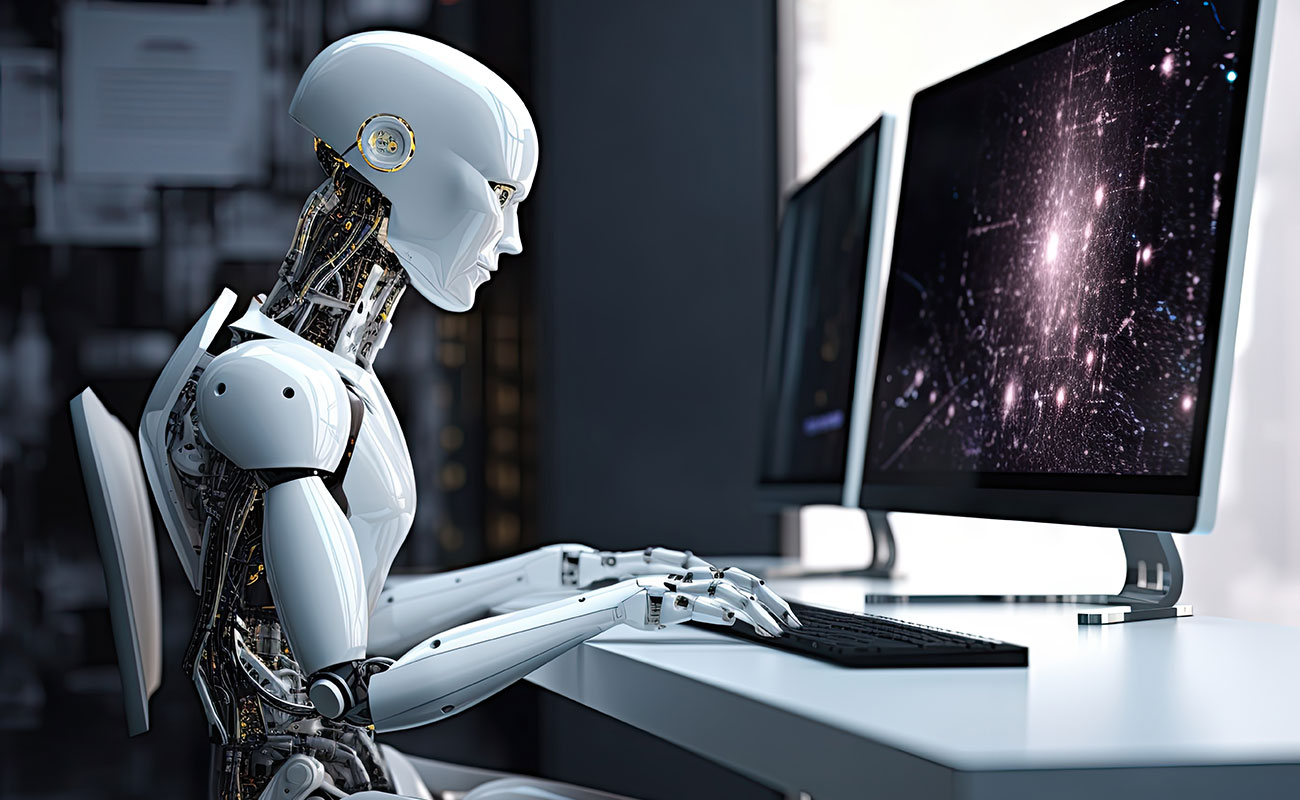Why This New AI App Could Replace Your Personal Assistant
In the fast-paced, tech-driven world we live in, the demand for personal assistants—whether human or virtual—has skyrocketed. People are constantly juggling work, personal life, errands, and social commitments, and managing everything effectively can feel like a Herculean task. Enter artificial intelligence (AI), a transformative force that is revolutionizing the way we live and work.
Recent advancements in AI technology have led to the development of a new breed of apps that could soon replace human personal assistants altogether. These apps are designed to streamline tasks, manage schedules, handle communication, and even anticipate needs with a level of efficiency and speed that was once reserved for science fiction. While personal assistants like Siri, Alexa, and Google Assistant have already gained popularity, these new AI-powered apps promise to go a step further, offering highly personalized, intelligent solutions to everyday problems.
This article will explore the features, benefits, and implications of the latest AI app that could ultimately replace the need for a personal assistant. From enhanced productivity to better time management, let’s dive into why this new AI app could be your next indispensable tool.
The Rise of AI Personal Assistants
Before we explore this new AI app, it’s important to understand the context of AI in personal assistance. For years, AI-powered virtual assistants have become common household names. Amazon’s Alexa, Apple’s Siri, Google Assistant, and Microsoft’s Cortana have all served as tools to help users perform everyday tasks like setting alarms, sending messages, playing music, or providing weather updates. These assistants have proven useful, but their capabilities are still somewhat limited.
Traditional virtual assistants often rely on user input and simple voice commands. While they can make life easier by handling basic tasks, they lack the advanced features and customization needed to manage complex workflows, anticipate needs, or engage in more nuanced conversations. As AI continues to evolve, the next generation of personal assistants promises to be far more intelligent and capable. This is where the new AI app comes into play.
What Makes This New AI App Different?
The new AI app that could replace personal assistants isn’t just another voice-activated tool. It combines the latest in machine learning, natural language processing (NLP), and predictive analytics to create a deeply personalized assistant that understands your needs, preferences, and habits over time. Here are some key features that set this app apart from traditional personal assistants:
1. Highly Personalized Experience
Unlike traditional virtual assistants, which tend to offer one-size-fits-all solutions, this new AI app is designed to learn from your behavior and adapt to your unique needs. Over time, it analyzes your schedule, preferences, and routines, becoming more attuned to how you work, what you like, and even when you’re most productive.
For example, it can suggest the optimal times to schedule meetings, automatically filter emails based on your priorities, or even remind you of upcoming tasks before you realize they’re due. As it learns more about you, it begins to anticipate your needs, providing proactive solutions rather than waiting for you to ask. This level of personalization is key to replacing the role of a human personal assistant, who would typically have to rely on explicit instructions.
2. Seamless Integration Across Platforms
One of the most frustrating aspects of using multiple apps or tools to manage tasks is the lack of synchronization. It’s easy to lose track of appointments, tasks, or important communications when they’re scattered across different platforms. The new AI app addresses this problem by seamlessly integrating with a wide variety of platforms, from email and calendars to project management tools, social media, and even fitness apps.
This integration allows the AI to act as a central hub, coordinating your daily activities across devices and software. For instance, it can pull data from your email, calendar, and to-do lists to offer a cohesive daily agenda, while also integrating with communication tools like Slack or Zoom to help you set up meetings or share documents.
In addition, the app can sync with smart home devices, allowing it to manage lighting, temperature, and even music based on your preferences. Whether you’re working at home, traveling, or in the office, this AI app ensures that all aspects of your life are organized and streamlined in one place.
3. Task Automation and Delegation
One of the most time-consuming aspects of managing a busy life is the endless stream of repetitive tasks. Whether it’s answering emails, scheduling meetings, or making appointments, these mundane tasks take up a significant chunk of time and energy. The new AI app seeks to eliminate these bottlenecks by automating tasks and delegating responsibilities on your behalf.
For example, if you receive an email from a colleague requesting a meeting, the AI can scan your calendar for available time slots, propose meeting times, and even send out invites—all without you having to lift a finger. If it notices a recurring task, such as reviewing reports every Monday morning, it can automate the process and provide you with a summary rather than having to search through emails or documents manually.
Moreover, the AI app can handle customer service inquiries, basic communication, and even follow-up tasks, making it the ultimate tool for boosting productivity. The app’s AI system is designed to prioritize tasks based on urgency and relevance, ensuring that you’re always focused on what matters most.
4. Advanced Natural Language Processing (NLP)
Another major innovation is the app’s ability to engage in complex conversations using advanced natural language processing. Unlike previous assistants that rely on scripted responses or limited voice recognition capabilities, this app understands context, tone, and nuances in language, making interactions feel more like a conversation with a human assistant.
For example, if you ask the AI to “schedule a meeting with Sarah for tomorrow,” it will not only understand that you want to set up a meeting but will also check Sarah’s availability and find a suitable time based on your calendar. It can interpret requests in a more natural way, eliminating the need for specific commands or formatting.
This level of understanding allows for more complex tasks to be handled, such as negotiating meeting times, crafting responses to emails, or even assisting with more creative tasks like drafting content or writing proposals.
5. Mental and Emotional Support
Perhaps one of the most intriguing features of this AI app is its ability to provide mental and emotional support. By monitoring your daily activities, communication patterns, and mood, the AI can offer reminders to take breaks, suggest relaxation techniques, or even recommend content (such as motivational podcasts or mindfulness exercises) to help you unwind.
Additionally, the app can track your emotional well-being by analyzing factors like sleep patterns, stress levels, and physical health. If it notices signs of burnout or stress, it might suggest changes to your schedule, propose stress-relieving activities, or even advise a visit to a professional for mental health support. This makes the app a holistic tool for not just managing tasks but also taking care of your well-being.
The Benefits of Replacing a Personal Assistant with AI
The potential benefits of replacing a human personal assistant with an AI-powered app are numerous. For starters, the app offers increased efficiency and organization. With the ability to handle tasks autonomously, prioritize activities, and learn from your preferences, the AI allows you to free up time and focus on what truly matters—whether that’s strategic thinking, creative projects, or personal downtime.
Furthermore, the app can operate 24/7 without the need for breaks or sleep. It doesn’t get tired, distracted, or forget tasks, making it a highly reliable assistant. Its ability to handle tasks remotely means that you can access assistance no matter where you are—whether in the office, at home, or on the go.
Additionally, AI can handle multiple tasks simultaneously without the need for human intervention, significantly reducing the time it takes to get things done. The app’s ability to integrate with various platforms also means it can streamline processes, cutting down on time spent jumping between apps or tools.
Challenges and Considerations
While the benefits of using an AI-powered app are clear, there are challenges and concerns to consider. For one, the technology is still evolving, and while it has impressive capabilities, it may not yet fully replicate the personalized care and nuanced decision-making that a human assistant can provide.
Moreover, there are privacy and security concerns when entrusting AI with sensitive personal data. It’s essential for users to ensure that the app follows robust data protection protocols and uses encryption to safeguard private information.
Conclusion
The new AI app that could replace your personal assistant is not just an advancement in technology—it’s a paradigm shift in how we approach productivity, time management, and mental well-being. With its ability to provide highly personalized support, integrate seamlessly across platforms, automate tasks, and even offer emotional assistance, it represents the future of personal assistance.
While there are still challenges to overcome, the capabilities of this app make it an exciting and valuable tool that could significantly enhance your life. Whether you’re a busy professional, a student, or someone juggling multiple commitments, this AI app is likely to become your ultimate productivity partner, helping you reclaim time, reduce stress, and make smarter decisions. The future of personal assistance is here, and it’s powered by AI.



